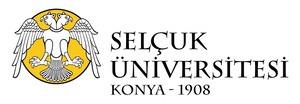Our laboratory is located in the FEAS building on the Selcuk University campus. It has a server and a computer network of 24 computers. All computers except the main computer have the same speed and configuration. The main computer is located in a different place from other computers and is one step ahead of the others. There are separators between computers. All computers have computer programs installed for the execution of controlled experiments. The technical adequacy of our laboratory for experiments is ensured by the continuous support of Selçuk University Computer Center and FEAS Technical Service unit.
Experimental methods have been widely used since 1930s and recently performed by computer and internet-based systems. The fundamental purpose of the laboratory is to provide researchers convenient environment for performing experiments regarding to the topics related to the economic, administrative and social sciences. In these experiments, researchers examine the decision outcomes or processes of the participants in different situations or scenarios by questionaires. These questions are designed through a software program, in such a manner that it is closest real-life decision making environment. You can think of this method as an imitation or a computer game form of the situations in which you need to make decision in real life. That way, researchers have the opportunity to test an existing theory or compare theories and validate certain decision making process for certain market mechanisms.
Some of the fields this method is used:
- Game Theory
- Consumer and Manager Behaviour/Perception in Economics and Business
- Marketing
- Financial Markets
- Market Mechanisms
- The Analysis of Foreign Policy
- Crisis and Conflict Management and Decision Making
- Public Opinion Studies, Voting
- Empathy in Foreign Policy
- Attitude and Behavior Studies For Different Public Policies
- Decision Making in Risky and Uncertain Environments
- Public Property Studies
- Behavioral Finance Studies
- Macroeconomics-Monetary/Fiscal Policies
- Judgmental Forecasting
- Behavioral Operations Research Models
- Energy Consumption and Policies
- Organizational Behavior and Motivation
